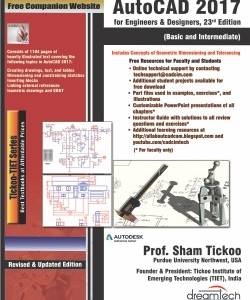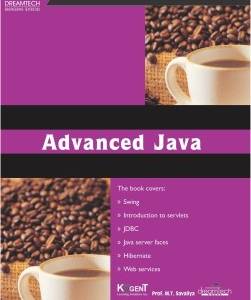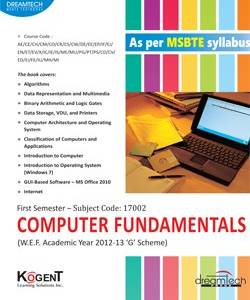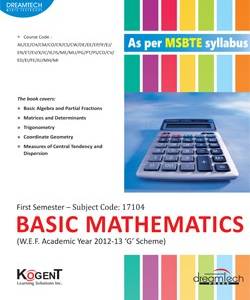Description
This book provides information about language processors and introduces you to design and implementation of various types of software, such as assemblers, macros, loaders, and linkers. Apart from these, you will also learn about compilers, aspects of compilation, memory allocation, compilation of expression and control structure, code optimization, and interpreters.
Chapter 1: Overview of System Software
1.1 Software
1.2 Software Hierarchy
1.3 System Programming
1.4 Machine Structure
1.5 Interfaces
1.6 Address Space
1.7 Computer Languages
1.8 Life Cycle of a Source Program
1.9 System Software Development
1.10 Levels of System Software
Chapter 2: Overview of Language Processors
2.1 Programming Languages and Language Processors
2.2 Language Processing Activities
2.3 Fundamentals of Language Processing
2.4 Symbol Tables
2.5 Data Structures for Language Processing
Chapter 3: Assemblers
3.1 Assemblers
3.2 Elements of Assembly Language Programming
3.3 Design of Assembler
3.4 Assembler Design Criteria
3.5 Types of Assemblers
3.6 Assembler for Intel x86
3.7 Algorithm for Single-Pass and Multi-Pass Assemblers
3.8 Advanced Assembly Process
3.9 Variants of Assemblers
3.10 Design of Two-pass Assembler
Chapter 4: Macro and Macro Processors
4.1 Macro and Macro Processors
4.2 Macro Definition and Call
4.3 Macro Expansion
4.4 Nested Macro Facility
4.5 Advanced Macro Facilities
4.6 Design of Macro Preprocessor
4.7 Design of Macro Assembler
4.8 Functions of Macro Processor
4.9 Basic Tasks of Macro Processor
4.10 Design Features and Issues of Macro Processor
4.11 Macro Processor Design Options
4.12 Two-pass Macro Processors
4.13 One-pass Macro Processors
Chapter 5: Linkers and Loaders
5.1 Basic Linker and Loader Functions
5.2 Relocation and Linking Concepts
5.3 Design of Linker
5.4 Relocating and Self-Relocating Programs
5.5 Linking in MS DOS
5.6 Linking of Overlay Structured Programs
5.7 Dynamic Linking Loaders
5.8 Different Loading Schemes
5.9 Design of Absolute Loaders
5.10 Design of Direct-Linking Loaders
Chapter 6: Scanning and Parsing
6.1 Programming Language Grammar
6.2 Classification of Grammar
6.3 Ambiguity in Grammar Specifications
6.4 Scanning
6.5 Parsing
6.6 Top-down Parsing
6.7 Bottom-up Parser
6.8 Language Processor Development Tools
Chapter 7: Compilers
7.1 Compilers
7.2 Causes of Large Semantic Gap
7.3 Binding and Binding Time
7.4 Scope Rules
7.5 Data Structures Used in Compiling
7.6 Memory Allocation
7.7 Compilation of Expressions
7.8 Compilation of Control Structure
7.9 Code Optimization
Chapter 8: Interpreters and Debuggers
8.1 Overview of Interpretation
8.2 Benefits of Interpretation
8.3 Java Language Environment
8.4 Java Virtual Machine
8.5 Types of Errors
8.6 Debugging Procedures
8.7 Classification of Debugging
Summary
Key Terms
Review Exercise
True or False
Multiple Choice Questions
Descriptive Questions
“Rajesh K. Maurya, Associate Professor, is teaching at Navinchandra Mehta Institute of Technology and Development, Mumbai. He has rich experience in teaching computer graphics, image processing, system software, data structures, compiler construction, and artificial intelligence to undergraduate and postgraduate students of science as well as technology and applications at various colleges affiliated to the University of Mumbai. A member of many professional and academic bodies, contributing to the growth of the subject, Prof. Maurya’s main areas of active research include image processing, intelligent systems, information management and multimedia computing.
G. M. Magar is presently an Associate Professor and heads the P.G. Department of Computer Science at SNDT Women’s University, Mumbai. He has vast experience of teaching P.G. Courses including Master in Computer Applications, Computer Science, Post Graduate Diploma in Computer Science & Applications (PGDCSA) and Master of Computer Information and Management (MCIM) at S.N.D.T. Women’s University Mumbai. As an active researcher and a research guide, he is involved in research areas including Geographical Information System, advanced databases and software design. He has several research publications national and International Journals and Conference Proceedings.
DT Editorial Services has seized the market of engineering textbooks, bringing excellent content in engineering and technical education to the fore. The team is committed to providing excellence in quality of content by judiciously analyzing the needs of its readers and ensuring dedication of its authors and editors in catering the same.
“







